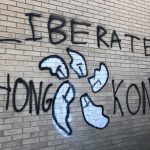A young Boston councilwoman made national news after bringing the career of long-time incumbent Congressman Mike Capuano to a screeching halt on Sept. 4, 2018. Instead of a white Ivy-League graduate, a black college dropout would represent Massachusetts’ Seventh Congressional District.
There are a few notable aspects of Pressley’s story that stand out. She’s the granddaughter of a Baptist preacher, one of a class of few black students at a prestigious Chicago private school and the daughter of a single mother struggling to stay afloat.
These experiences undoubtedly influenced the powerful Congresswoman that now sits on two instrumental House committees — but equally as important is her time in Boston as a student, employee and ultimately elected official.
The success of a young black woman in Boston is not a typical story.
The city faces drastic financial disparities among its diverse community that affect the economic success of certain neighborhoods, and that also spill into the daily lives of minority populations. A Boston Globe report found that the median net worth of a white family, $247,500, in Boston is nearly an astounding 31,000 times higher than that of a black family, whose net worth is $8.
Of eight major cities in the United States surveyed by the Globe, Boston ranked as the most unwelcoming to people of color. Boston has never elected a person of color to the mayor’s office. Only two black candidates have ever won a statewide election, and local candidates have rarely had better luck.
But Boston is the city a young Pressley was determined to thrive in, not by finding loopholes to escape discrimination, but by facing it head-on. Pressley’s first foray into politics and the city of Boston began at Boston University.
She earned her first elected positions as class president of the College of General Studies during her first year at the school.
During her freshman year, she organized an event on Martin Luther King Jr. Day and advertised the occasion as a “day on” after noticing her classmates saw the holiday as time off. She invited Rep. Joseph Kennedy II to join.
He did, and Pressley approached him after the event about interning for him, and she went on to work for him for two years. Pressley was eventually promoted from an unpaid intern to a paid staffer.
Interviews with friends and colleagues of Pressley’s have painted the picture of an incredibly strong and driven woman, the type who wouldn’t let the color of her skin get in her way. But she should not have been the first of her kind.
It makes sense that the first black Congresswoman from Massachusetts would hail from the seventh district, which encompasses the Greater Boston area. But the delay in black representation is unacceptable and systemic proof that the city may not be the liberal hub it sometimes appears to be. It has taken the seventh district of Massachusetts, whose population is about one-fourth black, until 2018 to elect its first black representative.
To thrive in politics as a white candidate, you gain the respect and admiration of your voters. To thrive in politics as black, Hispanic, Asian or any other minority, you fight long and hard to even be in the public eye — often at the expense of your fellow minority politicians.
Voters see the strength and determination of black politicians exercise to combat disadvantages, but not only do white candidates not face those struggles, their voters respect them as if they had. Racial discrimination is not a vetting process through which society should determine who is fit to hold office, especially when the majority of its politicians don’t face it.
Pressley is using her platform to advocate for a Green New Deal, which would push to decarbonize the economy. She hit the ground running after being sworn into the 116th U.S. Congress and has been appointed to the House Oversight and Financial Services committees.
Boston does not get to elect Ayanna Pressley simply because she was the first to make it past the obstacles put in her way and then celebrate as if the city suddenly champions equality. Pressley set a goal to make a difference in Boston’s politics, and overcame the barriers to a black woman’s success through dedication and tenacity.
Victoria is studying Economics and International Relations in the College of Arts and Sciences in the Class of 2022. Aside from The Daily Free Press, they're involved in WTBU Radio and Greek life on campus and are a Dean’s Ambassador in the Frederick S. Pardee School of Global Studies. When Victoria's not writing or editing, they're listening to podcasts and trying new coffee. Find them on twitter at @victoriagbond




